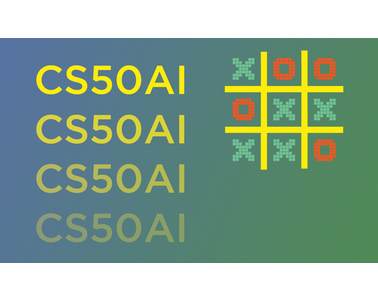| Take Harvard's CS50 Introduction to Artificial Intelligence with Python For Free |
| Written by Nikos Vaggalis | |||
| Wednesday, 07 June 2023 | |||
|
Need we say more? Python for Artificial Intelligence is a match made in heaven. This free and self-paced course materializes this relationship.
CS50's Introduction to Artificial Intelligence with Python is the latest addition to the line up of Harvard University courses that build on CS50x, the online version of David Malan's highly acclaimed CS50 class aimed at teaching Computer Science to beginners. Using Python, it explores the concepts and algorithms at the foundation of modern artificial intelligence, diving into the ideas that give rise to technologies like game-playing engines, handwriting recognition, and machine translation. In other words, it teaches subjects like search algorithms, classification, optimization and reinforcement learning. While self-paced, the estimated time of completion is 7 weeks, if dedicating 10–30 hours per week. These 7 weeks are divided into: 0. Search 1. Knowledge Practically, this means that in this chapter knowledge-based agents are going to build.That is, agents that are able to reason and act by representing knowledge internally. 2. Uncertainty This chapter then introduces the idea of probability theory, the mathematical foundations underpinning it and how to use it in order to program an AI that is able to use information about probability to draw inferences. 3. Optimization 4. Learning 5. Neural Networks 6. Language (There's also another quality class on NLP by Stanford, covered in our review Take Stanford's Natural Language Processing with Deep Learning For Free.) The approach taken in all of the chapters is pretty approachable. It lays out the concepts comprehensibly avoiding to throw dedicated terminology around without taking care of explaining it. After managing to deliver a good grasp of the underlying theory, to further solidify it, each chapter features examples and projects in Python.
Python 3.10 is required, while students should have at least one year experience with the language. The course also lists In any case, if you want to find out more this CS class make sure to check our review Computer Science For Beginners With Harvard's CS50x. As a format, the course is offered independently on Harvard's official site or can be taken through the edX platform, either for free or paid-for if you want a verified certificate on successful completion of the course. On edX is is also offered as part of Computer Science for Artificial Intelligence Professional Certificate which bundles it with CS50's Introduction to Computer Science, a 12-week course that is completed first, at a cost of $400. Of course all resources, such as the videos of the lectures, the source code, the slides and even the video transcripts are available in any versions of the class you choose to enroll in. All in all, this is a very satisfying course. It manages to blend theory and practice excellently and exposes the student to Python's data science environment that the language is so famous of. Totally recommended. More InformationCS50's Introduction to Artificial Intelligence with Python - EdX CS50's Introduction to Artificial Intelligence with Python - Harvard Official Related ArticlesComputer Science For Beginners With Harvard's CS50x Take Stanford's Natural Language Processing with Deep Learning For Free Microsoft's Machine Learning for Beginners
To be informed about new articles on I Programmer, sign up for our weekly newsletter, subscribe to the RSS feed and follow us on Twitter, Facebook or Linkedin.
Comments
or email your comment to: comments@i-programmer.info |
|||
| Last Updated ( Wednesday, 16 October 2024 ) |



